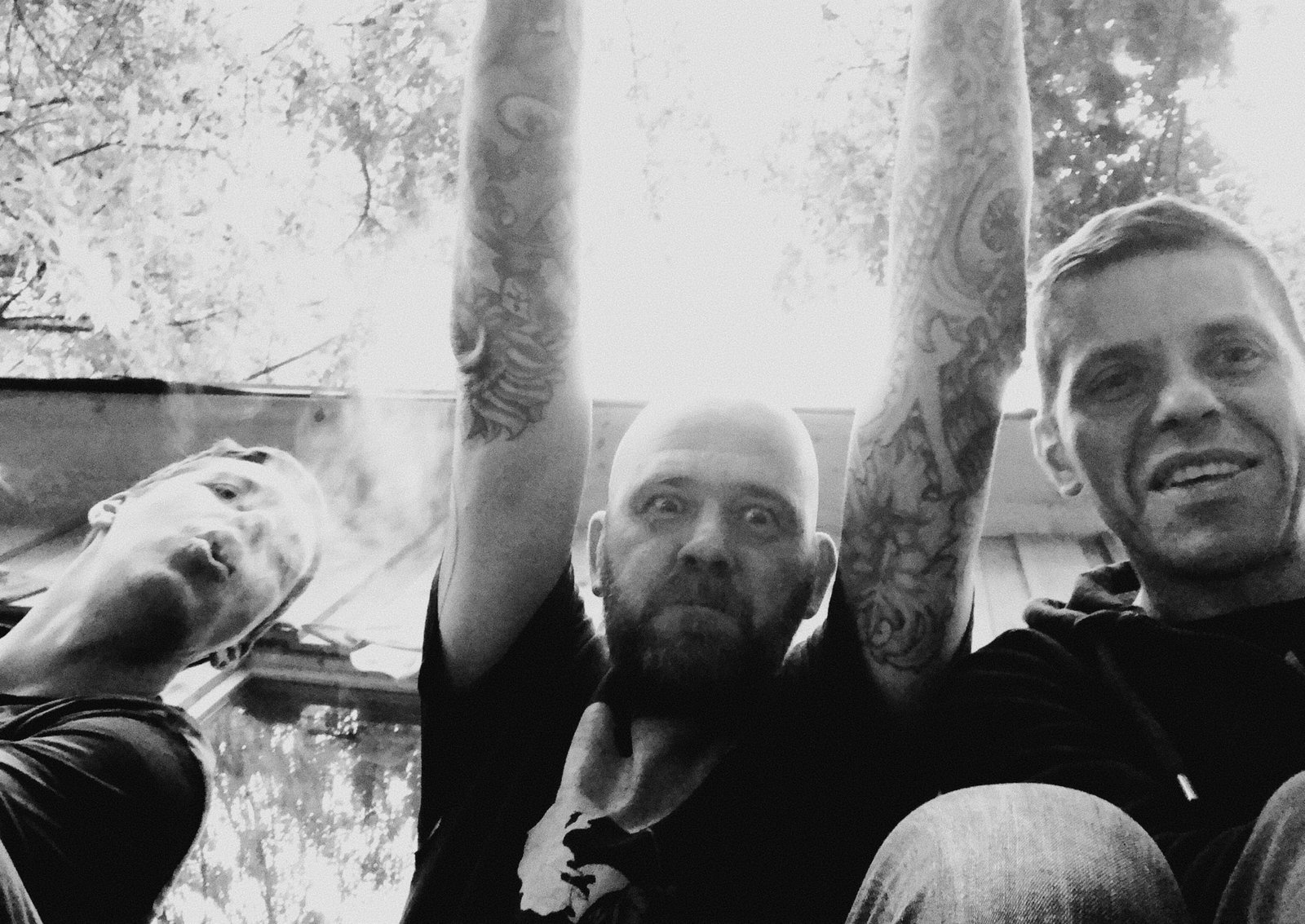At its height, the term ‘post-rock’ was one that many of its biggest names felt the need to reject. Bands such as Mogwai would actively distance themselves from the label, which was probably wise considering the range of arguments that remain to this day regarding whether or not an artist could be classed as post-rock. Fast forward to 2021 and for the second week in a row, our Weekly Featured Artist are quite comfortable to class themselves as such. However, much like our WFA from last week, BRUIT ≤, we are pleased to present to you a band intent on redefining the genre with fresh ideas.
Glasgow Coma Scale built a steady following in 2014 and 2016 with two solid releases, but took the title of their 2016 release, Enter Oblivion, a little too seriously – leaving us waiting for the follow-up for the next five years. Hailing from Frankfurt, Germany, Glasgow Coma Scale are a self-proclaimed stoner post-rock trio with a strong focus on letting their music tell its own story. Like the majority of the post-rock contemporaries, Glasgow Coma Scale specialise in instrumental offerings, with spoken samples or choir-like backing providing the vocal content. The name of the group in itself tends to provide a starting point for conversation. Named after a scale that measures a person’s level of consciousness, you can see many different interpretations of what the name might mean in various reviews of their albums. The band took some time to explain to us the origin of the name:
‘Actually, a friend of ours came up with the idea for his band that never happened. So we asked him to borrow the name. It’s a medical term and we liked how it sounds. However, it’s fun when people are trying to find more connection between the name and our music. Shows us that they listen carefully to what we create.‘
With the high praise for previous release Enter Oblivion, the band could be forgiven for resting on their laurels and following the same process for 2021’s follow up, Sirens. However, a few changes in approach and line-up ensure a fresh sound and a step forward for the three-piece. Perhaps the biggest change is that of the departure of previous drummer Helmes Bode, to be replaced by Peter Adamowicz. Adamowicz appears to slide easily into the role, providing a perfect blend of subtle and aggressive to complement the dual Kowalski assault. Guitarist Piotr Kowalski explains some of the additional changes to the writing approach that set Sirens apart from previous releases:
‘“Underskin” is a song in three-four time. Something I always wanted to do, but it always sounded too cheesy or waltz-like. “Underskin”, however, is neither one nor the other, but a strong, coherent composition that tells its own story. Another special feature is the song “One Must Fall”, where there is … singing. And it is sung where no one expects it (any more). Many fans will certainly want to read over this and we know that it has also gone wrong with one or the other representative of the scene. But we are convinced of the idea, so let yourself be surprised.‘
So what does the writing process look like for Glasgow Coma Scale? This is clearly an intricate process for the band, with many layers. With lengthy songs with various passages and changes in approach, we asked the band if they prefer a structured or a more jam-like approach to the writing process: ‘Either way is good and we use kind of a mix. Sometimes I have an idea that came to me by accident and we start jamming around it – recording everything and then picking up the best parts and again jamming again.‘
Listening to the latest release, Sirens, following a deep dive into the earlier releases, it appears the band are taking their work into darker territories at times, allowing these passages to both complement and contrast the more upbeat-sounding emotive sections. Carefully chosen samples and voice excerpts are interspersed to further pull the listener in, all of this something the band consistently work on to keep things fresh and exciting for them: ‘We’re constantly working on our sound. The samples are also very important as they help us to create a specific atmosphere. I wouldn’t mind to explore darker sounds in the future even more.‘
With such a unique style, Glasgow Coma Scale are aware of the need to carefully prepare for live shows, particularly with the expectations of some people to hear vocals. Having been robbed of the opportunity to gig due to obvious global pandemic reasons, the band outline their hunger to showcase the new record to live audiences in the coming months:
‘It’s usually bit harder than on the record. Besides that, it sounds pretty much similar, I think. Also, we are using visuals to create the atmosphere. Since there are no vocals, we didn’t want long pauses between the songs, so we use kind of electronic intros before and after each song – just to avoid uncomfortable silence. We’d love to play as many gigs as possible. We’re hungry for playing live and to see people’s reactions to the new songs. It’s the best indicator to us, so we finally know if Sirens is a good record or just an average one (hopefully not!)‘
As things promise to get busy for the three-piece, it is highly recommended you keep up to date with all things Glasgow Coma Scale by following the Facebook and Instagram pages. In the meantime, you can pick up digital and physical copies of the band’s current discography from their Bandcamp page.

Glasgow Coma Scale is:
Piotr Kowalski – Guitars, Keys, Programming
Marek Kowalski – Bass
Peter Adamowicz – Drums





